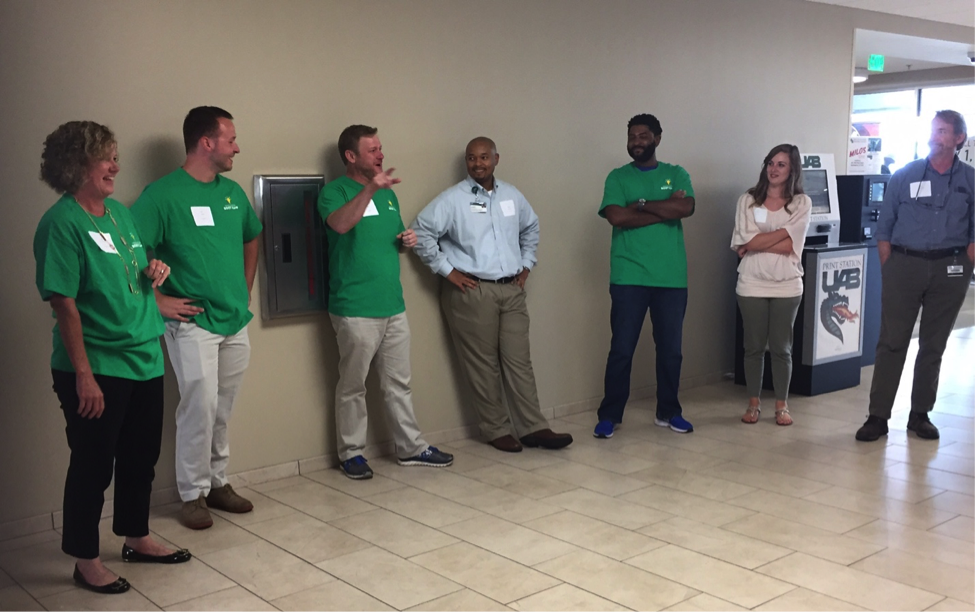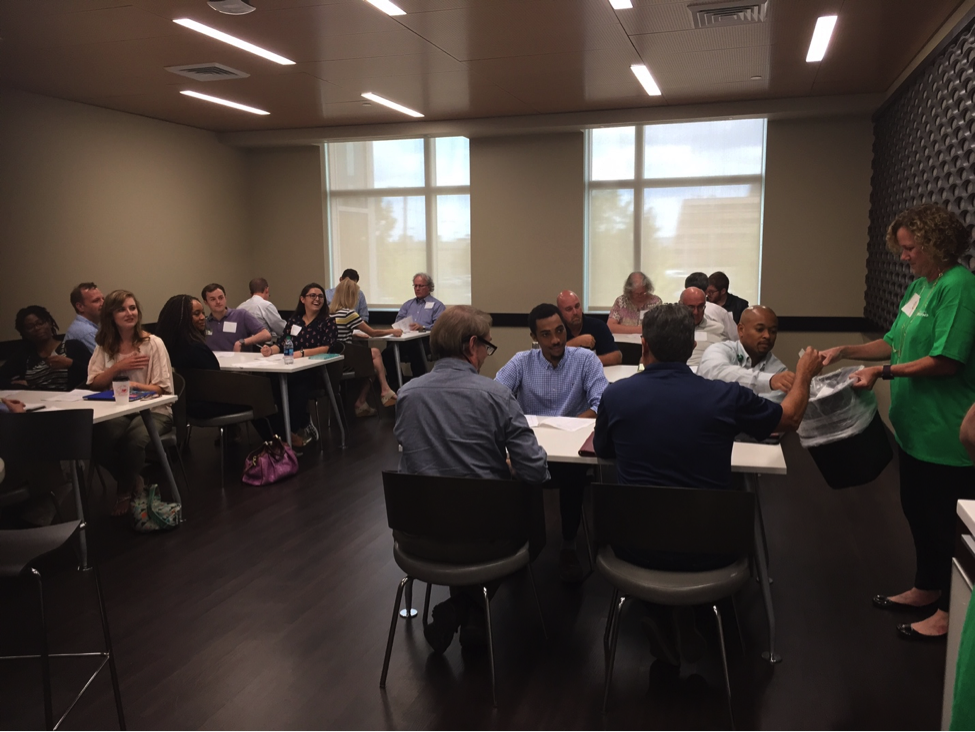 Dr. Molly Wasko (far l) and her team (green shirts l to r: Doug Ayers, Mickey Millsap, and Dr. Anthony Hood) ran through the Design Thinking rules for engagement with attendees.Attendees at this week’s Innovation by Design workshop quickly realized this was not going to be a “check my email while listening with half an ear” kind of training.
Dr. Molly Wasko (far l) and her team (green shirts l to r: Doug Ayers, Mickey Millsap, and Dr. Anthony Hood) ran through the Design Thinking rules for engagement with attendees.Attendees at this week’s Innovation by Design workshop quickly realized this was not going to be a “check my email while listening with half an ear” kind of training.
Within five minutes, Dr. Molly Wasko, CCTS Executive Council member and Associate Dean for Research, Innovation, and Faculty Success at UAB’s Collat School of Business, had everyone in the hall standing in a circle and cheering as she reviewed thea rules for the next 60-plus minutes: “Celebrate our values! Keep adding to the ideas of others, say ‘yes and’—no ‘yes buts’! And remember to celebrate others.”
 Dr. Anthony Hood models the Design Thinking team’s cool t-shirt.
Dr. Anthony Hood models the Design Thinking team’s cool t-shirt.
Wearing bright green t-shirts with the slogan “Innovation Boot Camp—Problem Solving + Design Thinking = Innovation” emblazoned on the back, Dr. Wasko and her team then led the group through a “Design Thinking primer.” Step one was to trash everyone’s name tags, because the next hour would be spent redesigning the “introduction experience.”
The exercise consisted of finding a partner, planning an interview that would build rapport and elicit stories from the partner, analyzing notes on what was heard for deeper inferences, developing a brainstorming topic, working with a collaborator to think of additional ideas, sketching out one of the ideas, then testing it with the initial partner. The goal was to demonstrate the underlying Design Thinking philosophy: “do not lose sight of the people in a problem.” It moved attendees through the five stages of the Design Thinking process:
- Empathize: develop a deeper understanding of the challenge
- Define: clearly articulate the problem you want to solve
- Ideate: brainstorm potential solutions from which a team will select one for further development
- Prototype: design an example or several examples of your solution
- Test: engage in a continuous short-cycle innovation process to continually improve the solution design
 Dr. Molly Wasko collects name tags as the first step in an exercise to “redesign the introduction experience.”
Dr. Molly Wasko collects name tags as the first step in an exercise to “redesign the introduction experience.”
“Design Thinking seeks to understand the future user of a solution and refine ideas based on our future users’ feedback,” Wasko said. “Innovation isn’t a mystery, but a repeatable process, aided by shared language and activities. Like scientists, we test hypotheses before we fall in love with our own solution.”
This thought-provoking, high-energy workshop will come around again (in response to user feedback, of course!), so stay tuned to our Events page and CCTS Digest for announcements.